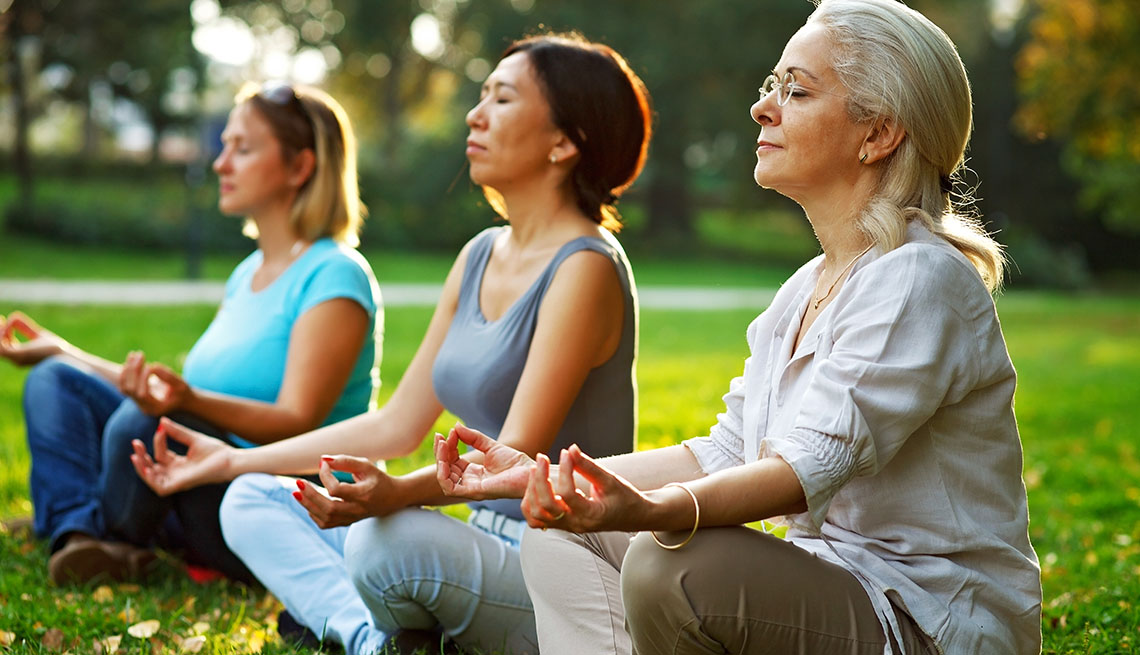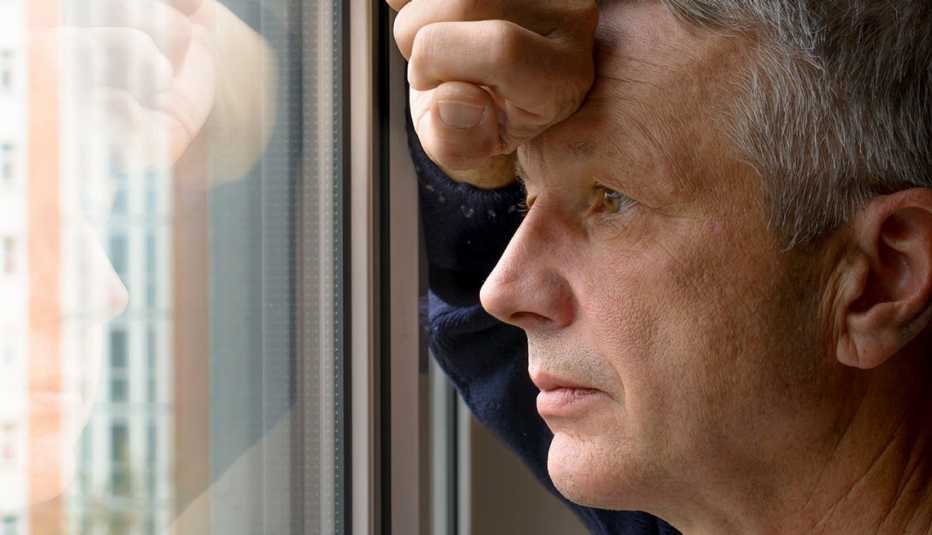Staying Fit
Anxiety is on the rise in the U.S., with boomers leading the hand-wringing charge. A 2018 national poll conducted by the American Psychiatric Association found that Americans’ anxiety score jumped five points on a zero-to-100 scale from the same poll taken in 2017 — with a seven-point leap among boomers.
Plenty of theories try to explain why we're so stressed out, pointing to technology's influence (devices that demand our constant attention), a faster-paced world and more widespread financial worries. Whatever the cause of your own anxiety, it's helpful to have ways to calm yourself when you start to feel the tension rise. Consult a doctor if your anxiety is persistent or interfering with your daily life.


AARP Membership— $12 for your first year when you sign up for Automatic Renewal
Get instant access to members-only products and hundreds of discounts, a free second membership, and a subscription to AARP the Magazine.
Here's the lowdown on some popular self-calming methods:
Mindfulness meditation
What it is: The practice of simply being still and focusing on your breath while you let thoughts float by — staying present without drifting into worries about the past or future.
One beautiful benefit is that you can do it nearly anytime, anywhere, says mindfulness mediation trainer Danesh Alam, a psychiatrist and medical director of behavioral health at Northwestern Medicine Central DuPage Hospital. “If you're going to a family event and it's going to be a high-anxiety day, you can slip away to have a five-minute meditation every hour. Do some deep breathing, and in those five minutes you'll lower your stress hormones and rejuvenate yourself,” Alam says.
Science says: Of all the self-care stress relievers, meditation is among the best-researched. A 2014 metanalysis of studies including 47 trials and 3,515 participants reported that mindfulness meditation practiced for two to six months worked as well for reducing anxiety symptoms as antidepressant medications.
Bottom line: Mindfulness meditation is easy, accessible and highly recommended for anxiety. Though many books, online articles and smartphone meditation apps like Headspace can guide you through the steps, Alam recommends taking a class. “Most communities have mindfulness meditation groups, some are no charge, where you can learn and ask questions. It's a good way to start,” he says.
Aromatherapy
What it is: Using scents, generally from essential oils from plants, to manipulate your state of mind. The theory is that inhaling certain compounds can affect the same parts of your brain as anti-anxiety drugs, but without the worrisome side effects. Some popularly used essential oils for anxiety include lavender, rose, ylang-ylang, chamomile, jasmine, basil, clary sage and bergamot orange.
The simplest way to practice aromatherapy is to inhale these essential oils by sprinkling a few drops on your pillow or a cotton ball, spritzing them into the air, or using a diffuser that disperses the fragrance into the air. You also can apply them to your skin via lotions or in a bath, but they can be irritating if not properly diluted.


































































